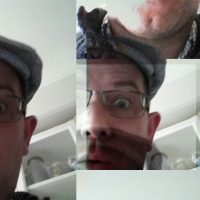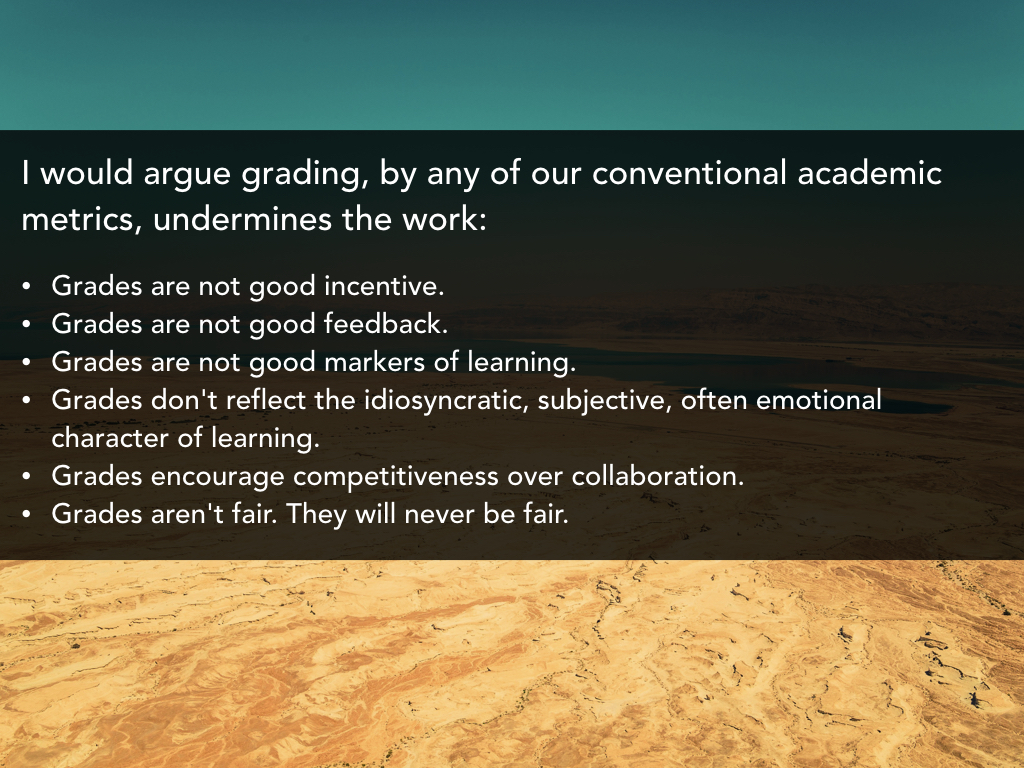Museums + Digital History
How do museums and other organizations in the ‘GLAM’ sector (galleries, libraries, archives, museums) keep track of their collections? To what purpose? What might happen if we release these collections into the wild (via the internet)? If we mash these collections together what might we see, and why might it matter? Where are the dangers - and to whom could it be dangerous?

Photo by Alex Motoc, Unsplash.com
In this class:
- you will work with materials from the Canada Science and Technology Museum, the Canadian Museum of Nature, and the Canadian Museum of History on the the theme of ‘the land’
- you will do a deep dive on a particular collection and its metadata
- as a group, you’ll devise both a way, and guidance, for the public to access all of this data
- you will keep track of your decision making and your learning, in the open (within reason)
- you will help organize a two-day international HeritageJam at the end of March 2020 around these materials
- you will curate the results
- You do not need to be ‘techy’, whatever that means
Sounds like fun, eh?
What is Cultural Heritage Informatics?
The intersection of digital history and museums might be found within the broader field of ‘cultural heritage informatics’. Cultural heritage materials require careful description and organization to permit effective curation, preservation, management, and research. You may have heard the term ‘bioinformatics’ before; that field defines itself as
‘the interdisciplinary field that studies and pursues the effective uses of biomedical data, information, and knowledge for scientific inquiry, problem solving and decision making, motivated by efforts to improve human health.’1
…in which case, we could define CHI similarly as an interdisciplinary field studying and pursuing the effective use of cultural heritage data, information, and knowledge for humanistic or scientific inquiry, problem solving, and decision making, motivated by efforts to improve human welfare. I added the emphasis there to make an important point. The decisions we make about information are necessarily ethical decisions. Computers operate by replicating the decisions we make, at enormous speed and scale. The consequences can be unintended and unforeseen, and so we have to begin from an ethical perspective that considers from the outset: who will this harm?
Meeting Time & Your Professor
Mondays, 11.35 - 2.25, in PA 436. 3 hrs per week in a single block of time. This enables us to do site visits or other creative work.

My name is Shawn Graham. I’m Associate Professor of Digital Humanities in the Department of History. My current major research project studies the online trade in human remains. I trained as a Roman archaeologist, but these days I consider myself to be a digital archaeologist.
My student hours for the winter term will be Wednesday mornings, 11-12. You will most likely find me in the library starbucks; grab a coffee and join me. Or drop me a line and we’ll find a time to chat: shawn dot graham at carleton dot ca.
Weekly Structure, or, How to Come to Class
Each meeting will be a combination of discussion of readings, podcasts, or videos, and exercises designed to promote facility with digital research methods and sources. You need to have engaged with the readings before the class; an excellent way of engaging with them is to use the hypothesis web annotation tool. You can join the group here. Hypothesis is activated with a plugin for chrome. Then, click on the plugin, select our group (after joining at the link above), and you can see what your peers are paying attention to while they read. Highlight the text that intrigues you, or add an annotation or marginalia about what you’re thinking as you read. You can use the 3ws approach: What’s weird about what you’re reading? What’s worrying? What’s wonderful? Annotating while you read helps make the material more sticky in your mind. Reading as a group gets the conversation going.
Required Technology
You do not need a computer; you may use the machines in the History department or other public computers on campus.
- You will need an account on Github.com. We will set this up in the first meeting. Please know that you do not have to use your real name in any username or profile data.
Other accounts with other services may become necessary; again, you do not need to use your real name in any username or otherwise identifying profile information. You will not need to purchase any access or software (although you may decide that this is something you wish to do).
I do suggest that you set up a ‘burner’ email account for this course, to use with any sign-ups or services that you do not wish to have tracking you.
Let me know via email which account/username is(are) yours.
Un|Grading
Grading - or rather, I should say, ungrading - will be based on the following four elements. The exact percentages are up for individual discussion, but I might suggest the following:
- 25% - process notes (10 devlogs, weekly from week 3 onwards)
- 25% - in-class leadership
- 40% - API collection (completed before the HeritageJam)
- 10% - HeritageJam (exact date at end of term to be determined)
What is ungrading? I follow Jesse Stommel’s lead on this who argues:

He goes on to say, ‘start by trusting students’. This is a 4th year seminar. I don’t need to nickel-and-dime you with graded assessments. I’d rather put my energy into trusting you, and helping you, to do interesting and important work. I am going to trust you to self-evaluate.
That is to say, you will do the work (the process notes, the inclass leadership, the API and the HeritageJam, being part of our community), but you will have the opportunity to evaluate your own performance.
Ungrading is optional. If you choose it, it will work like this:
** Feb 24** you will write me an Interim Letter on what you’ve achieved so far. This can be a letter; it can be a video, it can be whatever. You can begin by telling me what your goals are in this course. How you think you’re doing with regard to those four elements above, and your movement towards your goals? Draw on your process notes. Link to things that help explain, that help me to understand where you’re at.
During the exam period you will write me a Farewell Letter. Again, format is up to you. Reflect on where you’ve gotten to since the beginning, since the interim, with regard to those four elements. What kind of evolution have you gone through (draw on your process notes for evidence)? Challenges overcome? Was your destination achieved- did you get to where you thought you were going? How? In this letter you will also assess your entire body of work in terms of what letter grade you have earned for this course.
I reserve the right to change grades as appropriate. If you choose to not self-evaluate, I will use the 25-25-40-10 breakdown above, and will assess your entire body of work at the end of the term.
Late Policy
Life happens. I understand. I do not require dr’s notes. I simply ask that you talk to me as early as possible if something is coming up or has happened that is going to have an impact on your peers, or on your course work. I do not need to know the details. We can recover from most things if you talk to me. Because I also teach in the summer term, once we reach the end of this term, I have to get ready for the next term. In which case, please hit the deadlines as closely as you can. After the course finishes, I can’t accept anything else.
Online work policy
For anything that requires online work or presence (eg, usernames, accounts), you are under no obligation to use your real name.
Course Sharing Websites and Copyright
In contrast to the official Carleton language to be used, I instead release this work under a Creative Commons Attribution-NonCommercial-ShareAlike 4.0 International License.
Statement on Class Conduct
The Carleton University Human Rights Policies and Procedures affirm that all members of the University community share a responsibility to:
- promote equity and fairness,
- respect and value diversity,
- prevent discrimination and harassment, and
- preserve the freedom of its members to carry out responsibly their scholarly work without threat of interference.
Carleton University Equity Services states that “every member of the University community has a right to study, work and live in a safe environment free of discrimination or harassment”.
Standing in a course is determined by the course instructor subject to the approval of the Faculty Dean. This means that grades submitted by the instructor may be subject to revision. No grades are final until they have been approved by the Dean.
other ‘Regulations Common to all History Courses Winter 2020’ may be found here including how to formally request accommodations, grading scale, withdrawal dates and so on.
1: Casimir A Kulikowski, Edward H Shortliffe, Leanne M Currie, Peter L Elkin, Lawrence E Hunter, Todd R Johnson, Ira J Kalet, Leslie A Lenert, Mark A Musen, Judy G Ozbolt, Jack W Smith, Peter Z Tarczy-Hornoch, Jeffrey J Williamson; AMIA Board white paper: definition of biomedical informatics and specification of core competencies for graduate education in the discipline, Journal of the American Medical Informatics Association, Volume 19, Issue 6, 1 November 2012, Pages 931–938, https://doi.org/10.1136/amiajnl-2012-001053
